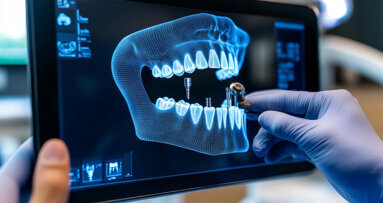CARDIFF, Wales: A new qualitative study has found that many dental patients in Wales remain unclear about the different roles within National Health Service (NHS) dental teams and how to access urgent dental care and emergency dental services. The findings highlight a pressing need for targeted public education to improve patient confidence, service efficiency and the uptake of skill mix models in dentistry.
The research, conducted by the Health and Care Research Wales Evidence Centre at Cardiff University, involved interviews and focus groups with 44 participants across all seven Welsh health boards. Results revealed that, while most respondents recognised the roles of dentists, dental nurses and dental hygienists, very few were aware of dental technicians—and none identified the role of dental therapists, despite their growing importance in NHS service delivery.
Participants frequently used the generic term “dental assistant” for any professional working alongside a dentist, indicating a lack of awareness about the specific training and scope of practice of different team members. This confusion extends to urgent dental care pathways. Many were unsure about what constitutes a dental emergency, who to contact or where to go for help. While some said they would call their own dentist or NHS 111, others admitted that they might attend accident and emergency departments unnecessarily. As described in the article, one participant said, “I don’t really know what constitutes an emergency”, and another stressed the need for clear guidance: “We need a bit of a campaign to say this is what you do with a dental emergency. But also, what is an emergency?”
These knowledge gaps could undermine current NHS reforms that encourage patients to seek care from the most appropriate professional, freeing dentists to focus on complex cases. The study’s authors note that acceptance of the skill mix approach depends on public trust—something that hinges on clear communication about roles and capabilities. Without it, patients may default to seeing a dentist even when another qualified team member could provide timely, effective care.
Participants also offered suggestions for closing these gaps, calling for multichannel public awareness campaigns led by NHS and other government bodies, alongside school-based education and community outreach. Such initiatives, they said, should clarify not only the make-up of dental teams but also the distinctions between routine, urgent and emergency care, and how each can be accessed.
The study, titled “Public awareness of care pathways and available skill mix in NHS dental teams: A qualitative study”, was published on 11 July 2025 in the British Dental Journal.
Topics:
Tags:
LONDON, England: The current state of public health dentistry in the UK is, without question, lamentable. Plagued by financial, personnel and regulatory ...
LONDON, England: Equitable access to high-quality dental care is one of the major public health challenges the UK has had to grapple with in recent years. ...
LONDON, England: The UK dental crisis is a highly significant public health issue, having escalated in recent years owing to continued reductions in ...
AARHUS, Denmark: As the implementation of artificial intelligence (AI) in the dental industry continues to accelerate, there appears to be a growing ...
Live webinar
Tue. 24 February 2026
1:00 pm EST (New York)
Prof. Dr. Markus B. Hürzeler
Live webinar
Tue. 24 February 2026
3:00 pm EST (New York)
Prof. Dr. Marcel A. Wainwright DDS, PhD
Live webinar
Wed. 25 February 2026
11:00 am EST (New York)
Prof. Dr. Daniel Edelhoff
Live webinar
Wed. 25 February 2026
1:00 pm EST (New York)
Live webinar
Wed. 25 February 2026
8:00 pm EST (New York)
Live webinar
Tue. 3 March 2026
11:00 am EST (New York)
Dr. Omar Lugo Cirujano Maxilofacial
Live webinar
Tue. 3 March 2026
8:00 pm EST (New York)
Dr. Vasiliki Maseli DDS, MS, EdM



 Austria / Österreich
Austria / Österreich
 Bosnia and Herzegovina / Босна и Херцеговина
Bosnia and Herzegovina / Босна и Херцеговина
 Bulgaria / България
Bulgaria / България
 Croatia / Hrvatska
Croatia / Hrvatska
 Czech Republic & Slovakia / Česká republika & Slovensko
Czech Republic & Slovakia / Česká republika & Slovensko
 France / France
France / France
 Germany / Deutschland
Germany / Deutschland
 Greece / ΕΛΛΑΔΑ
Greece / ΕΛΛΑΔΑ
 Hungary / Hungary
Hungary / Hungary
 Italy / Italia
Italy / Italia
 Netherlands / Nederland
Netherlands / Nederland
 Nordic / Nordic
Nordic / Nordic
 Poland / Polska
Poland / Polska
 Portugal / Portugal
Portugal / Portugal
 Romania & Moldova / România & Moldova
Romania & Moldova / România & Moldova
 Slovenia / Slovenija
Slovenia / Slovenija
 Serbia & Montenegro / Србија и Црна Гора
Serbia & Montenegro / Србија и Црна Гора
 Spain / España
Spain / España
 Switzerland / Schweiz
Switzerland / Schweiz
 Turkey / Türkiye
Turkey / Türkiye
 UK & Ireland / UK & Ireland
UK & Ireland / UK & Ireland
 Brazil / Brasil
Brazil / Brasil
 Canada / Canada
Canada / Canada
 Latin America / Latinoamérica
Latin America / Latinoamérica
 USA / USA
USA / USA
 China / 中国
China / 中国
 India / भारत गणराज्य
India / भारत गणराज्य
 Pakistan / Pākistān
Pakistan / Pākistān
 Vietnam / Việt Nam
Vietnam / Việt Nam
 ASEAN / ASEAN
ASEAN / ASEAN
 Israel / מְדִינַת יִשְׂרָאֵל
Israel / מְדִינַת יִשְׂרָאֵל
 Algeria, Morocco & Tunisia / الجزائر والمغرب وتونس
Algeria, Morocco & Tunisia / الجزائر والمغرب وتونس
 Middle East / Middle East
Middle East / Middle East






































To post a reply please login or register